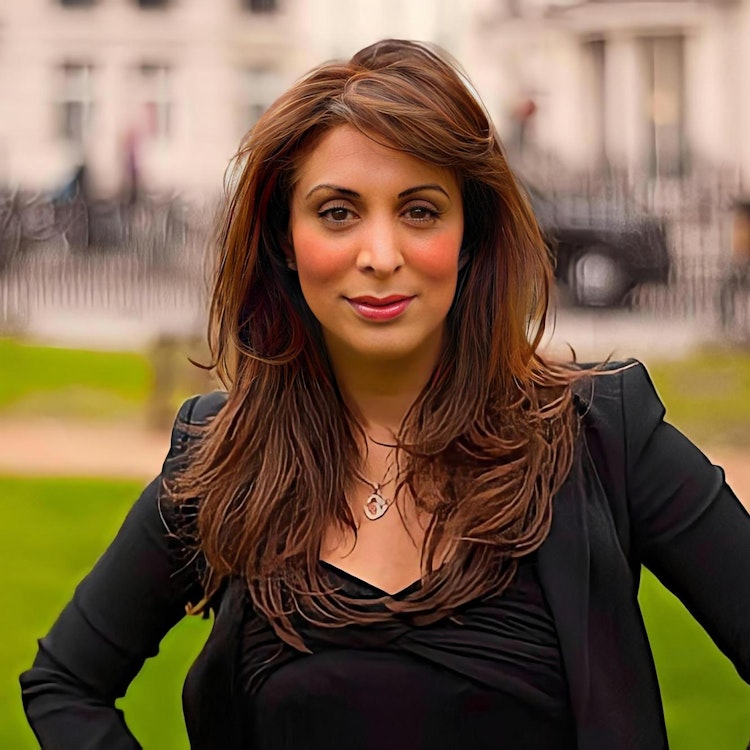The desire and need to diversify away from hydrocarbons has put Dubai, Abu Dhabi and Riyadh firmly on the map as global tech hubs and superpowers of innovation.
In 2023, investment from Gulf countries — which includes Saudi Arabia, Qatar, the UAE, Oman, Kuwait and Bahrain — into European startups reached $3bn, according to Dealroom data. That is about 5% of all startup funding in Europe last year, and a 5x jump in investment from 2018.
All signs suggest investment will continue to grow. In the past month alone, the UK has struck a science deal with Saudi Arabia to improve science and research links, Qatar has launched a $100m fund for startups that want to establish or expand operations within the country, and Saudi Arabia’s Public Investment Fund has announced that it is in talks with Andreessen Horowitz to create a $40bn fund to invest in AI.
Of course, these deals don’t come without their critics. The region’s mixed record on human rights, gender equality and environmental issues are occasionally brought into question and will deter some from seeking investment in the region.
The UK’s National Security and AI Act, which came into force in January 2022 and introduced new requirements for foreign direct investment in sectors that could impact national security such as AI, advanced robotics, and quantum technologies, will — and has — also put the brakes on some deals.
But, in a challenging funding environment where VCs are struggling to raise and capital for startups ready to scale is in short supply, it would be sagacious for fund managers to consider opportunities in the Gulf.
To build a unicorn, decacorn or a successful VC fund, you need investors who a) believe in you; b) can write decent-sized cheques; and c) have a risk appetite. The Gulf has those capabilities — and money is not in short supply in the region. So what do VCs and founders keen to raise from the Gulf need to know?
1. Be relevant
One thing is certain — it’s not as simple as going there, presenting good ideas and expecting cash to fall into your lap. As in any other region, you need to identify product market fit and be crystal clear on what your product or service delivers for the local economy and people.
Look at local governments’ objectives and align to those where possible. Saudi Vision 2030 is Saudi Arabia’s roadmap for ‘economic diversification, global engagement and enhanced quality of life’, and places a strong emphasis on finance, health, housing and logistics, amongst other things.
The UAE, meanwhile, was the first country to appoint an AI minister — showing an intention to embrace this technology way beyond the lip service we see from other governments. The Gulf Kingdoms are free from the legacy infrastructure we often see in public sector services and own assets from airlines to prime real estate. This makes the government much more agile and one of the biggest buyers of new innovative technology — evidenced by the speedy integration of blockchain technology into various government systems. Finding ways to make your business or fund relevant in the context of a country’s priorities will open doors and make initial conversations easier.
2. Prioritise relationships
From my own experience, I have seen that when clients meet with large pension funds and sovereign wealth funds, asking Emiratis, Kuwaitis, Saudis, Qataris, Omanis and Bahrainis for money outright is a faux pas. It’s a long game, it’s about relationships, building trust and demonstrating tangible ROI in the region – both in financial and social impact terms.
But the truth is relationships take time and energy. In-person meetings are important and you can’t expect to fly in, have lots of meetings with key decision-makers and come home with signed cheques. You generally need to build authentic relationships and speak to people between 3-5 times before touching on the topic of money.
The Gulf countries operate on word of mouth and the community of decision makers is small. If you make a good impression with one person, they will likely introduce you to someone else, and on it goes.
For VCs, placement agents are a good option for those going in the cold; they will leverage their network to help you start to build yours. These agents don't overtly advertise their services though — everything is based on word-of-mouth so my advice is to map out your own contacts, find out who has Middle East connections and ask for introductions and recommendations. This industry is all about who you know and who knows you: networking is critical.
3. Gain some local credibility
The Gulf region is home to some of the leading innovation hubs in the world – from Hub 71 in Abu Dhabi to the Dubai Future Foundation. There are cohort call-outs but many of these are backed by big corporates so getting onto one will give startups the credibility and commercial in-roads they need. Startups should look for accelerators and initiatives with big-name backing — the market isn't as saturated as it is in Europe so you can more or less guarantee that programme participation will be worth your time and effort from a learning, business development and fundraising perspective.
4. Be confident but measured
You have to play the long game in the Gulf. Nurturing authentic relationships is critical; a transactional approach won't land and you can't expect quick decisions. While confidence in your market potential is necessary, you need to take a measured approach. An American-style 'sell the dream' pitch needs rigorous checks and balances to back you up. There is plenty of patient capital available for those who can walk the line between future vision and solid commercial projections delivered with humility.
5. Be open-minded
My final piece of advice would be to drop everything you think you know about the region and go with an open mind. The rate of change is like nothing you will have witnessed elsewhere in the world — culturally, politically, and economically. More than half (55%) of the population across the Middle East and North Africa are under the age of 30. With an increasing educational base and more men and women being educated abroad at the top universities and business schools, the region has evolved into a vibrant ecosystem — driven by some visionary new leaders.



